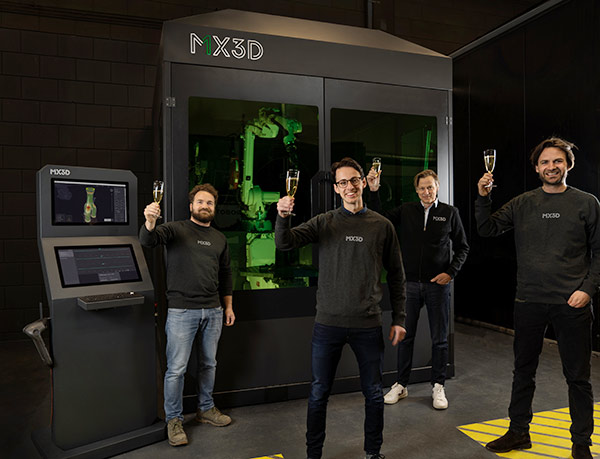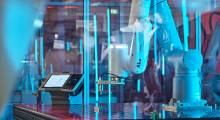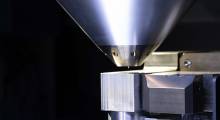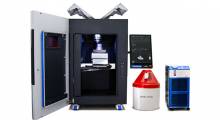MX3D yesterday announced that it has raised €2.25 million ($2.69 million U.S.). The Amsterdam-based startup plans to use the funding to launch the M1 additive manufacturing system, which includes a welding robot, software, and control systems to 3D-print metal parts. MX3D also said it will accelerate development of the MetalXL software and control system to turn existing welding robots into industrial-grade 3D metal printers.
Since 2015, MX3D has been developing robotic 3D metal-printing technology. It claimed that its technology allows for more flexibility and optimization in design and can save on materials, lead time, and costs across industries including maritime, oil and gas, and construction. The company added that it was a pioneer in robotic wire arc additive manufacturing (WAAM) and created a 3D-printed, stainless-steel bridge in Amsterdam.
In 2018, the bridge won two Dutch design awards and the 3D Printing Challenge award, and MX3D won the STARTS prize, an EU Commission award for the most innovative creative tech project. The company works with partners including Autodesk, TU Delft, The Alan Turing Institute, Imperial College London, and Lenovo.
MX3D continues 3D metal printing development
MX3D said MetalXL allows users to manage the whole additive manufacturing (AM) process from design to print “in one go.” Since its first investment, the company has introduced MetalXL to a large group of launching customers. MX3D added that it will use the current investment for further development and commercial rollout.
“Our Metal XL software and control system enables companies to turn their welding robots into a high-end 3D metal printer in the course of one day,” stated Gijs van der Velden, CEO of MX3D. “Since the launch of MetalXL, we have received many customer requests whether we could supply them with a complete solution. The M1 metal AM System is the answer to this call. Now customers without a welding robot can quickly and affordably start printing large metal parts.”
MX3D added that MetalXL can connect multiple brands of robots, power sources, and sensors. “Our goal is to connect several more robot brands, which allows us to service more than 80% of the worldwide robotic market,” Van der Velden said.
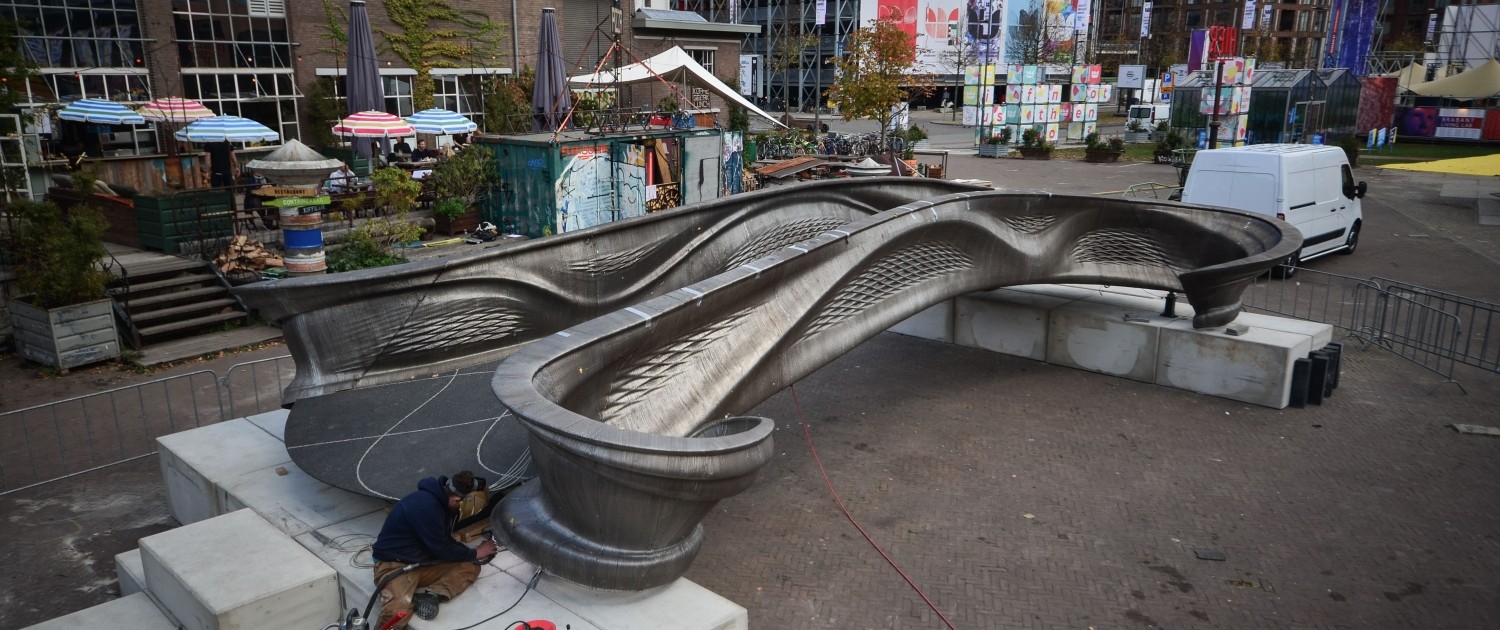
Investors see 3D printing as path to sustainability
DOEN Participaties, PDENH, and the Netherlands Enterprise Agency (RVO) participated in MX3D's latest investment.
“DOEN Participates has supported MX3D for a long time, and with this new investment, we show that we have a lot of faith in the new M1 metal AM System and the future of MX3D,” said Merijn ten Thije, impact investment manager at DOEN Participaties, which said it is the largest impact investor in sustainable and social startups in the Netherlands. “The innovative MX3D solution enables companies to improve their production methods and significantly reduce the need for transport and material. This can have a significant positive impact towards a more sustainable future.”
“We strongly believe in the technological lead and worldwide potential of MX3D and gladly help to realize the growth plans of the ambitious MX3D team,” said Joost de Waard, an investment manager at PDENH. PDENH is an investment fund focused on companies that contribute to the energy
transition, sustainable mobility, and circular economy.
Article topics
Email Sign Up

